BASF Crop Protection has submitted application for the registration of new Engenia™ herbicide, a technologically advanced dicamba formulation.
Farmers will be able to use the new product in combination with other herbicides and agronomic practices, under a weed control system enabled by dicamba-tolerant crops currently in development.
“Farmers fighting against herbicide resistance have an important new tool in Engenia which, field research shows, will offer excellent weed control and crop safety, as well as low-volatility characteristics for improved on-target application,” said Paul Rea, Vice President, U.S. Crop Protection, BASF.
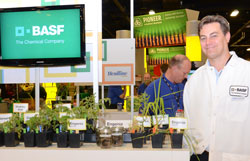 Engenia will deliver broad-spectrum burndown of more than 100 annual broadleaf weeds, including tough, glyphosate-resistant weeds like Palmer amaranth, waterhemp, marestail, velvetleaf, morningglory and giant ragweed. In fact, field research demonstrates that Engenia is more effective than 2,4-D on many problem weeds, such as velvetleaf, marestail, giant ragweed and morningglory.
Engenia will deliver broad-spectrum burndown of more than 100 annual broadleaf weeds, including tough, glyphosate-resistant weeds like Palmer amaranth, waterhemp, marestail, velvetleaf, morningglory and giant ragweed. In fact, field research demonstrates that Engenia is more effective than 2,4-D on many problem weeds, such as velvetleaf, marestail, giant ragweed and morningglory.
A registration decision by the U. S. Environmental Protection Agency (EPA) for Engenia is anticipated in a parallel time frame with commercialization of a dicamba-tolerant soybean system.
Commercialization of the dicamba-tolerant system for soybeans is expected in the U.S. mid-decade, with cotton, corn and canola to follow. (Read more from BASF)
We had a chance to see how Engenia works at the 2012 Commodity Classic, with the help of BASF ag biologist Chad Brommer, who explained how the product is researched and tested in the lab. We shot a little video of Chad doing some show-and-tell, which you can see below.

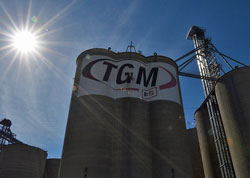 During the recent
During the recent  Randy says the venture between South Central and TGM has been very successful. “It’s been a win-win for our local grain producer in that it has helped enhance their margin, it’s been profitable for us as a company, but we’re a local cooperative so in turn it’s profitable for our owners and members,” he said. Most of the grain goes to the southeast to the poultry market and ADM and Bungee on the bean market.
Randy says the venture between South Central and TGM has been very successful. “It’s been a win-win for our local grain producer in that it has helped enhance their margin, it’s been profitable for us as a company, but we’re a local cooperative so in turn it’s profitable for our owners and members,” he said. Most of the grain goes to the southeast to the poultry market and ADM and Bungee on the bean market. 

 The company’s Weed Management Solutions platform
The company’s Weed Management Solutions platform 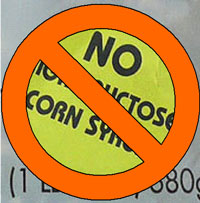 In recent letters to food marketers, NCGA called on them to stop marketing products as not containing high fructose corn syrup, implying there is something especially unhealthy or unnatural about corn sugar.
In recent letters to food marketers, NCGA called on them to stop marketing products as not containing high fructose corn syrup, implying there is something especially unhealthy or unnatural about corn sugar. We have interviewed Dr. Dan Westberg many times over the past several years about
We have interviewed Dr. Dan Westberg many times over the past several years about  He joined BASF 21 years ago when the company bought the Sandoz corn business, and that allowed young Dr. Westberg to see the world. “For the first couple of years I got to travel internationally to develop markets outside of the U.S.,” he said. “It was a great opportunity to visit Brazil, Argentina, virtually every country in Europe, particularly France and Germany.”
He joined BASF 21 years ago when the company bought the Sandoz corn business, and that allowed young Dr. Westberg to see the world. “For the first couple of years I got to travel internationally to develop markets outside of the U.S.,” he said. “It was a great opportunity to visit Brazil, Argentina, virtually every country in Europe, particularly France and Germany.”  Just wanting to get back to the land was a desire that led Ann and Jim Irvin to a piece of property near Charleston, SC that is now home to
Just wanting to get back to the land was a desire that led Ann and Jim Irvin to a piece of property near Charleston, SC that is now home to 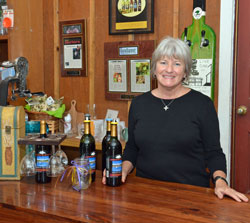
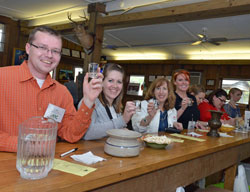
 Building upon record-breaking numbers in 2012, next year’s event, scheduled for February 28 through March 2 in sunny Kissimmee, Florida, promises to be a winner.
Building upon record-breaking numbers in 2012, next year’s event, scheduled for February 28 through March 2 in sunny Kissimmee, Florida, promises to be a winner.